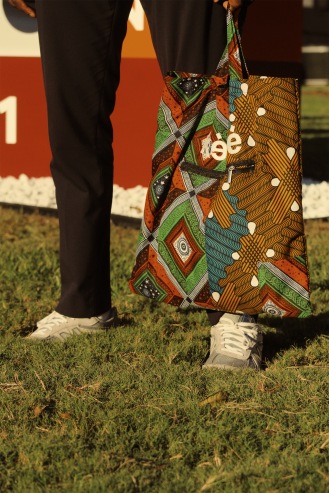"Notorious brands and figures in the fashion industry have contributed to the historical exclusion of marginalized designers."
It is known that Black creativity knows no bounds and fashion is no exception. Fashion has been a cultural ground for Black Americans for years on end; which means, it has and continuous to be susceptible to theft. Black designers have been purposely placed in the shadows but coincidentally not overlooked. We know why it's happening but how and how long is another story.

From 1982 to 1992, Daniel Day, ran the urban, high-fashion scene. While residing in and being a native of Harlem, he owned a tailor shop that became a staple in early Hip-Hop fashion. Daniel Day, eventually known to all as Dapper Dan, supplied high caliber Black community members with the exclusives they were seeking. Buyers wanted what designers weren’t constructing. His signature developed notoriety and the culture stamp of approval. In other words, he was really like that. Using scrap material, real or fake, from labels: MCM, Fendi, Gucci & Louis Vuitton — he crafted silhouettes that were fresh and exciting.
They say word of mouth is the best promotion. However, how good the promotion is becomes debatable when it leads to cease and desist letters. Legal trouble led to the 24-hour, 125th Street storefront to say good-bye to what it had become.
No one knew it then but eventually, Dapper Dan would have a resurgence.
Gucci's 2017 display of their Cruise 2018 collection created an uproar amongst Black communities. The Italian fashion released an almost a replica of a Dapper Dan original. It was clear this was more than inspiration that he did not give credit to.
Internet bullying pushed Gucci to make a statement. Referring to the design as homage vs. theft. The same Gucci that shut down the spot in '92. The same Gucci that later extended an invitation to Dan for a Gucci x Dapper Dan collection.
Notorious brands and figures of the fashion industry have contributed to the historical exclusion of marginalized designers. So what does it mean when those who have stifled you turn around offer you space to thrive? There's a thin line between progression and performance.
Regardless of what side it falls on, most designers don't get that extended invitation. Fast fashion retailer FashionNOVA, has a history of upholding, "no extended invitations" Based off how frequently they're accused of stealing, they don't care what side they fall on either.
Jai Nice, owner of clothing label Kloset Envy, shared a video to Instagram supporting claims of FashionNOVA stealing from her. The accusations suggest the company ordered her clothing under a surname to eventually mass produce replicas of her work. NOVA then blatantly returned the ordered garment to her door from their shipping department.
Social media has helped combat the issue as it hosts dialogue around the subject. With so many conversations happening, it's a wonder what sort of message rising designers get from it all.
East African college student and emerging designer, IIKENNA, expressed his thoughts on larger brands taking advantage of emerging designers and their vulnerability of wanting their big break.

“Of course, I’m scared of a bigger brand trying to infiltrate what I’ve worked hard for. I’ve put a lot into Kene. It’s what they like to do. I can only hope that it doesn’t happen. If it were to, I’d fight hard,” said IIKENNA. He continues with, "It sucks when you can’t just get credit. A simple shout-out or a seat at the table would suffice. They play on the fact that when you are new, you don't have as much clout or celebrity as them and that just wrong."
Unfortunately, stories like these are a dime a dozen and sometimes it seems not much is done about it. That type of hopelessness is all too familiar in the Black community. Innately, Black people will preserver and continue to make strides but we must ask ourselves, "At what cost?"
